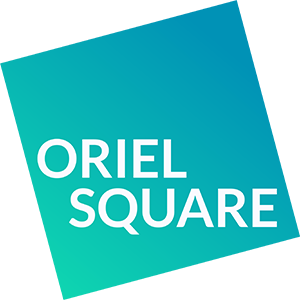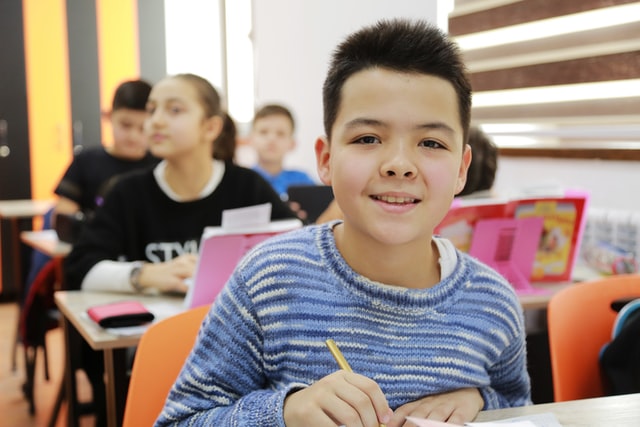Charlotte al-Qadi is a Cultural advisor and publishing services provider. Get in touch or find out more about her work.
Oriel Square can help your organisation deliver educational content for the MENA market. Get in touch to find out more.
Taking a different approach
We all have a culture, of course, be it American, Chinese, Malay, Saudi Arabian, Inuit, not to mention the subcultures within.
In over 15 years of working in educational publishing for the Middle East and North Africa (MENA) market, I have commissioned and worked on countless educational resources, exam papers and courses, all with a necessary level of cultural awareness.
Whilst language from publishers in recent years has become less negative when briefing such work, there still, at times, remains an air of reluctance. An impression that the publisher would rather not have to think of such matters and would like to take the easiest route when finding a solution to the discovery of a culturally unsuitable image or topic. But I look at my work in a different way.
We should accept and embrace that cultures other than our own also have cultural sensitivities and contexts.
We all have a culture, of course, be it American, Chinese, Malay, Saudi Arabian, Inuit, not to mention the subcultures within, as well as other interactions such as gender and generational differences. And we all have things that we find acceptable or unacceptable, whether in general or specific to educational materials. We should therefore accept and embrace that cultures other than our own also have cultural sensitivities and contexts, that inform different perspectives or interpretations. Things that we don’t want to be in our educational materials and courses. Things that would get in the way of effective teaching and learning.
But that doesn’t mean that anyone would want substandard materials with fewer photos because it has been deemed easier to cut the photo than to find a suitable replacement. Or a resource with repetitive themes and unengaging texts because it was too time-consuming to research a more suitable topic.
Maintaining quality in adaptation
By making subtle changes, you can retain the material that the author has so carefully chosen and crafted to work with the rest of the content.
When assessing material, I find it essential not to simply cut inappropriate images or texts, but to look very carefully at what the cultural issue is and to see if the existing material can be used, even in a different way. Sometimes, just changing a few words to adjust the angle of the topic can render a problematic text suitable. A careful crop of a photo can remove the part that could be offensive without losing the effectiveness of the image itself on the page. You can then retain the material that the author has so carefully chosen and crafted to work with the rest of the content. You leave it as it was designed, albeit with subtle changes to suit the culture of your target market.
I enjoy the challenge that comes with adapting material for local contexts. Arab culture is rich and diverse, and I think that highlighting that in the content is key for any successful educational product.
Rami Sa’di, e-Learning consultant and Arabic/English Translator.
If a photo or text cannot be saved, it’s very important to find equally interesting alternatives. Enough time should be given to allow that replacement to be of as good a quality as the one it replaces. And in doing this, you keep the end user central to the process – they won’t miss out on the quality of materials, the engaging topics and carefully chosen image that the original author has envisaged. And that, of course, is the most important thing.
Keeping the end-user central to the process is the most important thing.
Standing the test of lockdown!
Over the past six months, the Covid-19 pandemic has put more of a focus on the materials students are using. Remote learning has put those materials to the test with little teacher input and everything on display for parents to see. If something is culturally unsuitable or if one aspect of the course is weak, be it from rushed or ill-thought-out adaptation, it has all been in full view. Teachers have been able to see what works and what does not, parents have been able to see not only materials but how the teacher has responded. All that feeds into the higher-level relationships between schools, students, parents and the wider community.
Remote learning has put learning materials to the test with little teacher input and everything on display for parents to see.
I know from experience with my own children studying at home that my perceptions of their subjects and how they’re taught has varied, often in line with the quality of resources. Subjects that relied on online resources with no interaction from teachers have produced weaker results than those that added in (distance) contact time with feedback and engagement. This is something that I will definitely take away when helping produce both print and digital materials in the future – they have to be lockdown proof!
Something to embrace
Learning materials have to be lockdown proof!
As a final point, we should keep in mind that cultural sensitivity considerations don’t only apply to education and publishing. They apply to all areas of life. People who visit or move to new places with unfamiliar cultures for work can benefit from cultural orientation to better understand and navigate new working relationships and improve their own experience there. This in turn benefits the company they work for and their own experience of the environment and people with whom they are engaging or living with.
Navigating cultural sensitivities enriches our understanding, learning and enjoyment of one another and is something to embrace.
In the Middle East in particular, relationships are central to good business and if a short cultural orientation course can facilitate this, it is a positive thing all round. This could extend to tourists (who hasn’t read the ‘cultural dos and don’ts’ in a guide book, at some point?!) and people who work with specific cultural groups in their home country.
We all spend a significant amount of time navigating cultural sensitivities to one extent or another, even if subconsciously. It enriches our understanding, learning and enjoyment of one another and is definitely something to embrace professionally and personally for a happier and more positive world.
Charlotte al-Qadi is a Cultural advisor and publishing services provider. Get in touch or find out more about her work.
If you are interested in how Oriel Square can help your organisation deliver educational content for the MENA market, please get in touch.

